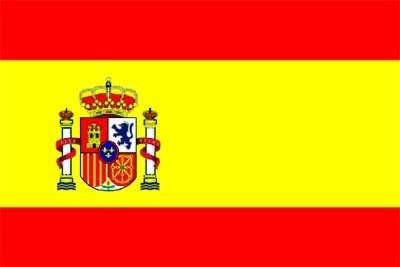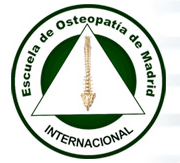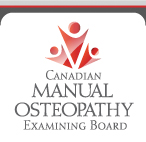Half of all men and one-third of all women in the United States will develop cancer during their lifetimes. Today, millions of people are living with cancer or have had cancer. Naturopathic medicine is an effective way in which many types of cancer can be prevented and even treated.
Why Use Naturopathic Medicine for Cancer?
Naturopathic medicine uses natural therapies to provide holistic healing with an emphasis on healing the body both inside and out. Naturopathic medicine incorporates therapies like nutrition, herbal medicine, traditional Chinese medicine, and others that have been scientifically-tested to improve health. The kind of improvements that a Naturopath can foster in a patient’s physical health—improvements to the immune system and metabolism, for example—can help improve resistance to disease and could prevent cancer. In the treatment of cancer, it favors gentle therapies that improve overall health over harsher allopathic solutions like pharmaceutical drugs, which can have unwanted side effects.A naturopath can work with a patient’s cancer treatment plan to lessen the side effects of their allopathic cancer treatment. Naturopathic therapies can help stabilize the metabolism, boost the immune system, and give the patient more energy—all of which are important to the body’s self-healing process while undergoing cancer treatment.
How Can Naturopathic Medicine Prevent and Treat Cancer?
In Naturopathic medicine, the first step in the prevention and treatment of any disease, including cancer, involves elimination of the causes of the disease. The next step is to treat potential illnesses, medical conditions, and insufficient functioning of the organs and glands. It is also important to boost the immune system, enhance nutritional status and digestion, reduce the side effects of treatment, reduce fatigue, and improve the quality of life.In order to build optimal health and increase the body’s natural ability to resist and combat various types of cancer, a Naturopath may recommend a basic plan including the following:
- When selecting food, emphasize quality, balance, moderation and variation. Select the food of highest quality–all natural, organically grown, fresh, unprocessed, non-irradiated, and without synthetic chemicals. It is also beneficial to avoid frying, broiling, and microwave use.
- A healthy calorie ratio guide is 40% from complex carbohydrates, 20-30% from protein, and 20-30% from good fats (such as olive oil and avocado). The major vitamins and minerals in the diet should be vitamins A, B6, C, D, K, folic acid, and selenium.
- Avoid eating foods that trigger sensitivities. The patient’s blood type should also be considered.
- Try to select a wide variety of foods that are in season. This means more raw foods and fruits in the spring and summer and more cooked root vegetables and seasonal fruits and greens in the fall and winter. Also increase foods that support the liver (carrots, beet leaves, nutritional yeast, flaxseed oil), which is key to eliminating toxins in the body.
- Eat foods containing phytochemicals, which deactivate mutagens and carcinogens, prevent formation of carcinogens and help detoxify the body of carcinogens, scavenge free radicals, reduce damage to DNA and cellular membranes, and slow down the promotion and proliferation of the cancer process. These may include broccoli, cauliflower, cabbage, kale, and Brussels sprouts.
- Eliminate or replace simple sugars. Sweet foods and drinks increase the release of insulin and suppress the immune system. Reduce saturated fat intake and increase the intake of protective Omega-3 fatty acids, including flaxseed oil, sesame and pumpkin seeds, salmon and mackerel.
- Avoid consuming excessive calories. Also refrain from using tobacco in any form (smoking, chewing or snuffing) and avoid alcoholic beverages or consume them only in moderation.
- Reduce exposure to environmental carcinogens, toxic substances, and radiation.
- Drink plenty of pure, non-chlorinated water.
- Do self-applied hydrotherapy, including heat and cold applications, and take detoxification baths using Epsom salts.
Naturopathic medicine can also include other modalities to address cancer prevention and treatment, including:
- Homeopathy to address post-surgical recovery, nausea, constipation, and diarrhea
- Chinese medicine
- Manipulation of muscles, the spine, and other bones
- Acupuncture to treat pain
- Massage to alleviate stress
- Colonics (enemas)
- Therapeutic exercise
- Minor surgery
Is Naturopathic Medicine Safe for Cancer Treatment?
Healthcare professionals tend to agree that naturopathy is not a complete substitute for conventional medical care for cancer, but it appears to be a generally safe healthcare approach if used as complementary (rather than alternative) medicine. However, some therapies used in naturopathy have the potential to be harmful if not used properly or under the direction of a trained practitioner. In addition, restrictive or other unconventional diets can be unsafe for some people.What is Naturopathic Medicine?
Naturopathy is a Latin-Greek hybrid word that means being close to or benefiting from nature. Naturopathic medicine has evolved over time in different cultures and parts of the world, though it was first developed in the late 1800s in Germany, spreading throughout Europe. Naturopathic medicine differs from conventional medicine in that the emphasis is on supporting the natural self-healing processes of the human body versus combating disease, taking into account the whole person.A naturopathic physician typically combines several kinds of natural therapies, including diet, lifestyle changes, vitamins, minerals, and herbal medicines to prevent illness, treat disease, and promote well-being. Naturopaths emphasize education in naturopathic approaches to a healthy lifestyle, strengthening and cleansing the body, and using the least invasive, most physiologically supportive methods possible.
Naturopathic doctors or physicians (NDs) have had four years of study in a school of naturopathy. They may diagnose illness with many of the same methods used in conventional medicine, including X-rays, laboratory tests, and physical exams. However, naturopathic treatment does not generally use drugs, radiation therapy, or major surgery.
How Do I Find a Naturopathic Physician?
The American Naturopathic Medical Association offers information on Naturopathic Medicine, practitioners, and training.Additional Resources
Alive.com has an article on Naturopathic Medicine and Bone Cancer Prevention.The American Cancer Society has a web page on Naturopathic Medicine.
The Cancer Treatment Centers of America website includes information about Naturopathic Medicine and cancer.
The National Center for Complimentary and Alternative Medicine offers a web page on Naturopathy.
Go to Content










 Master PCMH Criteria with Upcoming Webinars
Master PCMH Criteria with Upcoming Webinars







 The American Osteopathic Association (AOA) is the representative organization for the over 70,000 osteopathic physicians (DOs) and 18,000 osteopathic medical students in the United States. The organization promotes public health, encourages scientific research, serves as the primary certifying body...
The American Osteopathic Association (AOA) is the representative organization for the over 70,000 osteopathic physicians (DOs) and 18,000 osteopathic medical students in the United States. The organization promotes public health, encourages scientific research, serves as the primary certifying body...










 9:55
9:55
 Daniel Enriquez de Guevara
Daniel Enriquez de Guevara













.jpg)


















0 comentarios:
Publicar un comentario